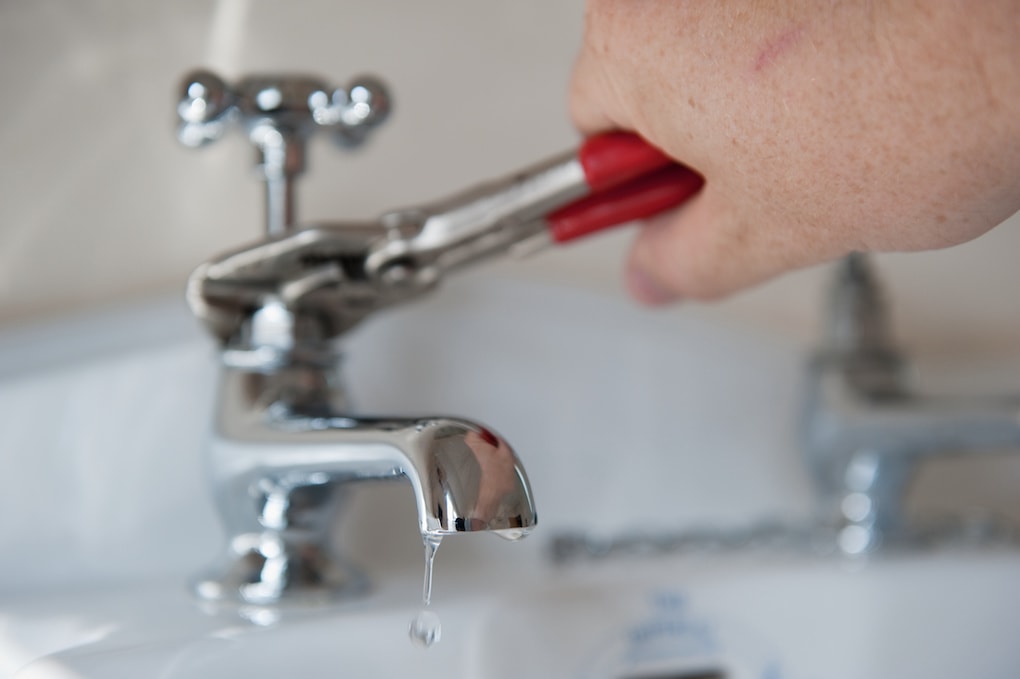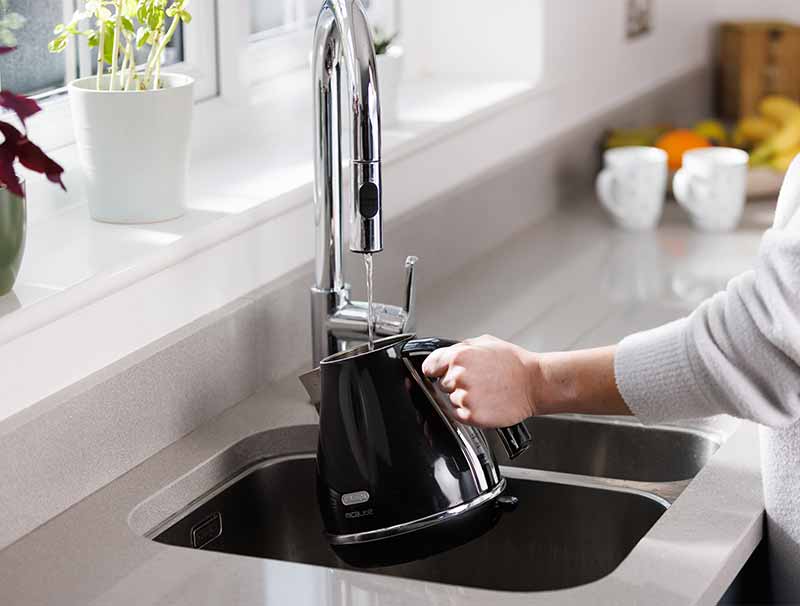Efficient Techniques for Addressing Low Water Pressure in Your Home
Efficient Techniques for Addressing Low Water Pressure in Your Home
Blog Article
What are your thoughts and feelings about Dealing with Low Water Pressure in Your Home?

Low tide pressure in your home can be a frustrating issue, impacting everything from showering to washing recipes. If you're experiencing weak water circulation, there are numerous possible reasons and services to discover. In this guide, we'll go over usual reasons for low tide stress and useful actions to resolve the issue successfully.
Intro to Low Water Pressure
Low water pressure happens when the circulation of water from your taps, showers, and various other fixtures is weaker than typical. This can make daily tasks a lot more difficult and much less effective. Recognizing the causes of low water stress is essential to finding the right solution.
Typical Sources Of Low Water Pressure
Pipe Obstructions
In time, pipelines can end up being clogged with natural resource, sediment, or particles, limiting the circulation of water. This is a common concern in older homes with galvanized steel pipes.
Rust
Corrosion within pipelines can lead to leaks and decreased water stress. Rust build-up can tighten water flow, particularly in maturing plumbing systems.
Faulty Stress Regulatory Authorities
Stress regulators are accountable for keeping constant water pressure in your home. If they malfunction, it can cause low water stress or uneven circulation throughout the house.
Community Water Issues
In some cases, the trouble lies outside your home. Metropolitan water supply issues, such as main line leaks or upkeep job, can temporarily lower water stress in your location.
Just How to Diagnose Low Water Pressure
Examining Faucets and Fixtures
Start by testing the water stress at various faucets and components throughout your home. If the problem is isolated to particular areas, it might indicate local problems.
Evaluating Pipes
Examine noticeable pipelines for indications of leaks, corrosion, or blockages. Pay attention to any uncommon audios, such as banging or rattling pipelines, which can suggest concerns within the plumbing system.
Consulting with a Plumber
If you're unable to determine the source of low tide pressure, think about working with an expert plumber to perform a complete examination. They can recognize underlying concerns and advise proper services.
DIY Solutions to Deal With Low Water Stress
Cleaning Aerators and Showerheads
Mineral deposits can collect in aerators and showerheads, lowering water circulation. Get rid of and clean these parts frequently to enhance water pressure.
Flushing Water Heater
Sediment buildup in the hot water heater can limit circulation and decrease effectiveness. Flushing the container regularly helps eliminate sediment and maintain optimum efficiency.
Checking Pressure Regulatory Authority
Make sure that the pressure regulator is operating properly. Readjusting or replacing the regulatory authority can assist recover proper water pressure throughout your home.
Clearing Up Clogs in Pipes
For minor blockages, try making use of a plumbing snake or chemical drain cleaner to clear obstructions in pipelines. Beware when using chemicals and follow security guidelines.
When to Call an Expert Plumber
If DIY efforts stop working to resolve the concern or if you believe substantial plumbing problems, it's best to seek aid from a qualified plumber. They have the know-how and devices to attend to complex issues safely and efficiently.
Safety Nets to Keep Water Stress
Routine Upkeep
Set up regular maintenance for your plumbing system to avoid issues such as corrosion, leakages, and blockages. Attending to minor problems early can aid prevent more substantial repair work in the future.
Installing a Pressure Booster
Think about mounting a stress booster pump to boost water stress in locations with consistently low circulation. This can be specifically useful for multi-story homes or properties with high-demand components.
Monitoring Water Usage
Be mindful of water usage practices and avoid ill-using the plumbing system. Simple adjustments, such as staggering showers and washing lots, can assist maintain adequate water pressure.
Verdict
Handling low tide pressure can be irritating, however determining the underlying causes and applying appropriate options can restore ideal circulation throughout your home. Whether it's cleansing aerators, examining pipelines, or seeking advice from a plumber, taking positive steps can make sure a constant supply of water for your everyday requirements.
How to Fix Low Water Pressure In Your Home
Municipal Water Supply Issues
Scheduled maintenance, high demand, and water main breaks are all potential causes for low water pressure within a city or county’s water lines. While there’s not much you can do to personally fix a problem with your city or county’s water supply system, you can play a big role in documenting the issue and alerting those who can.
How to fix it:
Ask your neighbors if they are experiencing any issues with low water pressure. If multiple homes are affected, it’s likely related to the city’s water line.
Contact the local Water Authority to see if there is any maintenance taking place that might be affecting your supply. Also let them know of your specific issues. If other homeowners report the same issues, they’ll know that there could be a larger issue to look into.
Faulty Fixtures
A damaged or clogged shower head, faucet or appliance is the first thing we’d suggest checking, especially if low water pressure appears to be isolated to a specific area of your home.
How to fix it:
First, turn off the main water supply to your home.
Check the affected appliances for build-up or debris. In the case of a faucet, you can simply unscrew the aerator at the tip of the faucet. Showerheads should be fully detached from the water pipe.
While the appliances are detached, you may want to check the water supply to determine if the fixtures were in fact the issue.
To clean, soak the showerhead or aerator in vinegar and brush off any visible debris.
Reattach the fixtures and check the water pressure again. If it is still low, there is likely a deeper issue at hand, which can be determined by a professional plumber.
Pipe Obstructions
Mineral deposits, rust or other debris within water pipes can lead to blockages or corrosion over time.
How to fix it:
When you think of a clog, you probably think of a drain clog. While there are many DIY solutions to clearing a drain, clogs in a water pipe will almost always require the help of a professional plumber. A plumber will be able to locate the affected pipe and clean out any debris or mineral deposit buildup. In severe cases, the pipe may need to be replaced. Your plumber might also recommend a water softening system to remove the minerals from your home’s water supply that can contribute to pipe blockages over time.
Plumbing Leak
Undetected water line leaks can divert water away from your residential pipes, reducing the water pressure in your fixtures.
How to fix it:
Check your water meter by turning off all water sources and monitoring the meter for any movement, which could be a clear indicator of a potential leak.
Check all visible pipes for signs of leaking, including water stains, active dripping or damp spots around the pipe.
Inspect fixtures, including faucets and showerheads, for any drips.
Test the pressure but recording the pressure with the main water valve shut off. Leave off for a few hours and test again. A significant drop in pressure is a clear sign of a leak.
https://kiddcoplumbing.com/plumbing-blog/how-to-fix-low-water-pressure/

How to Fix Low Water Pressure In Your Home
Municipal Water Supply Issues
Scheduled maintenance, high demand, and water main breaks are all potential causes for low water pressure within a city or county’s water lines. While there’s not much you can do to personally fix a problem with your city or county’s water supply system, you can play a big role in documenting the issue and alerting those who can.
How to fix it:
Faulty Fixtures
A damaged or clogged shower head, faucet or appliance is the first thing we’d suggest checking, especially if low water pressure appears to be isolated to a specific area of your home.
How to fix it:
Pipe Obstructions
Mineral deposits, rust or other debris within water pipes can lead to blockages or corrosion over time.
How to fix it:
When you think of a clog, you probably think of a drain clog. While there are many DIY solutions to clearing a drain, clogs in a water pipe will almost always require the help of a professional plumber. A plumber will be able to locate the affected pipe and clean out any debris or mineral deposit buildup. In severe cases, the pipe may need to be replaced. Your plumber might also recommend a water softening system to remove the minerals from your home’s water supply that can contribute to pipe blockages over time.
Plumbing Leak
Undetected water line leaks can divert water away from your residential pipes, reducing the water pressure in your fixtures.
How to fix it:
https://kiddcoplumbing.com/plumbing-blog/how-to-fix-low-water-pressure/
Hopefully you enjoyed reading our article on 10 Reasons for Low Water Pressure in Your House. Thanks for spending some time to read our piece. Do you know somebody who is excited by the topic? Feel free to promote it. Thanks a lot for being here. Please come visit our site back soon.
Website Report this page